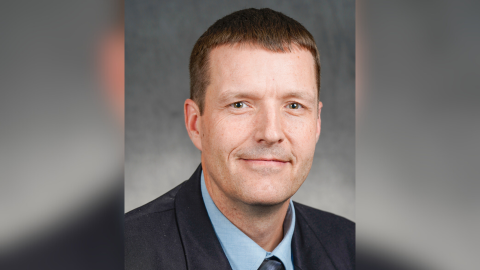Saturday, Nov. 23, was National Adoption Day, and the latest findings showed Minnesota has made progress in helping kids in the foster care system secure a better future.
Aaron Sojourner, labor economist at the W.E. Upjohn Institute for Employment Research, helped lead a study of reforms Minnesota approved in 2015. He said states often provide financial support to children in foster care but support ends when a child is adopted or placed in a kin guardianship.
Minnesota decided to continue payments to households who take a child in permanently. Sojourner pointed out three years after foster cases started, positive outcomes became clear.
"The kids were scoring much higher on standardized achievement tests," Sojourner reported. "They were experiencing less turnover in schools and school instability."
He noted the incentives also boosted the chances of kids age 6 and older exiting the foster care system and moving into permanent home settings by 29%. Sojourner added while the results are encouraging, it is just one aspect of the child welfare landscape. Other research has shown racial disparities in Minnesota's foster care system, especially when looking at reducing entry rates.
Sojourner stressed if state lawmakers revisit the extended monthly payments in budget talks, they will need to realize the long-term payoff from these investments.
"The state is paying more money now but they're going to reap the benefits down the road," Sojourner contended. "In terms of increased earnings and employment."
His team's study said prolonged exposure to foster care is tied to poor transitions into adulthood, including homelessness.
-
Plus: the Minnesota State Patrol recently honored troopers and citizens for their heroic actions; and high school Nordic skiiers will soon compete in Biwabik.
-
Davis, of Crow Wing County's Mission Township, was first elected to the state Legislature in 2022.
-
The merged company now owns more than 4 million acres in forest holdings across the U.S. PotlatchDeltic denies any allegations of wrongdoing at Bemidji mill in new court filings.
-
Plus: Deer River School District considers moving to a four-day school week; and Cass County is taking comments its environmental assessment of a development near Gull Lake.
-
Superintendent Pat Rendle will bring the alternative schedule application to the Board on Feb. 11, 2026, for what he wants to be a final decision.
-
Minnesota Power and American Transmission Co. LLC are proposing to construct approximately 67.5 miles of transmission line between Grand Rapids and Hermantown.
-
The meeting is scheduled for 5 p.m. Feb. 10, 2026, and is intended to create a common vision and guidance for improving safety and efficiency in the corridor.
-
Also honored Thursday was Wendell Hudspeth with the Meritorious Citizenship Award, presented to citizens who assisted the state patrol and provided a service to the public.
-
The court ruled that cannabis possession by Thompson, as an enrolled member on the White Earth band living on the reservation, became a civil matter once MN legalized recreational marijuana.
-












